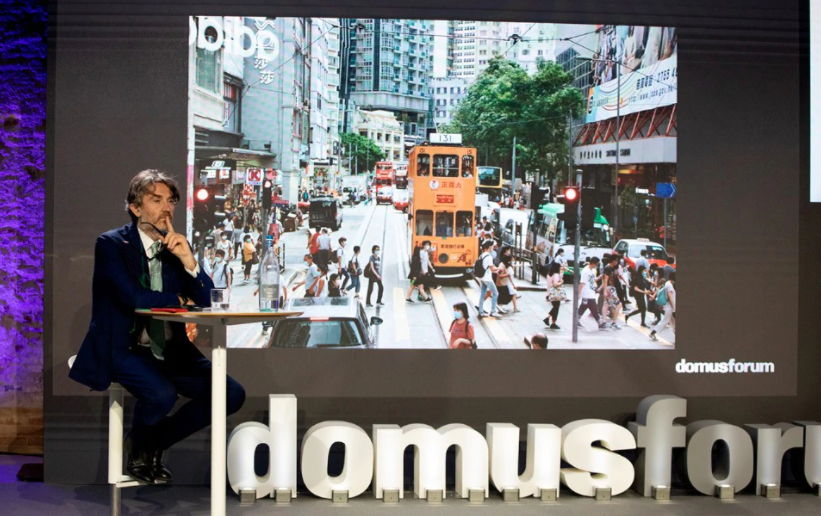![]() On 4 November 2020, Domus organized the DomusForum 2020 “The future of cities” (Discover more >>). The conference brought together high-profile experts, international organizations, business leaders, government officials and academics for a conversation on the challenges faced by cities, especially in the context of the COVID-19 pandemic.
On 4 November 2020, Domus organized the DomusForum 2020 “The future of cities” (Discover more >>). The conference brought together high-profile experts, international organizations, business leaders, government officials and academics for a conversation on the challenges faced by cities, especially in the context of the COVID-19 pandemic.
The conference focused on a central question: “Will the concept of cities as we know them survive the era of the virus?”. At the same time, several key issues regarding the cities of the future were identified, such as the increased prevalence of tele-working beyond the pandemic, the importance of technology and technological companies in the development of cities, and of stakeholder management as crucial for good governance.
The Deputy Director of the World Heritage Centre delivered a presentation in which she highlighted the potential of historic cities to serve as lessons and resources to achieve sustainable urban development. She noted that the current crisis is in addition to other ongoing global crisis including Climate Change and disasters linked to Climate Change related extreme weather events, as well as conflicts. These crises highlight the deficiencies of our current planning system that disregards, disrespects, or threatens the heritage value of the city. Hence, we need to create plans and processes that integrate heritage protection into the urban processes to make the cities resilient, sustainable and liveable. The Deputy Director proposed specific ways to achieve this goal by referring to tools developed by UNESCO, such as the 2011 Recommendation on the Historic Urban Landscape and the Culture | 2030 Indicators.
Fonte: UNESCO.org
![]()
Il 4 novembre 2020 Domus ha organizzato il DomusForum 2020 “Il futuro delle città”. La conferenza ha riunito esperti di alto profilo, organizzazioni internazionali, leader aziendali, funzionari governativi e accademici per una conversazione sulle sfide affrontate dalle città, in particolare nel contesto della pandemia COVID-19.
La conferenza si è concentrata su una domanda centrale: “Il concetto di città come le conosciamo sopravviverà all’era del virus?”. Allo stesso tempo, sono state identificate diverse questioni chiave riguardanti le città del futuro, come la maggiore prevalenza del telelavoro oltre la pandemia, l’importanza della tecnologia e delle società tecnologiche nello sviluppo delle città e la gestione degli stakeholder come cruciale per buon governo.
Il vicedirettore del World Heritage Centre ha tenuto una presentazione in cui ha evidenziato il potenziale delle città storiche come lezioni e risorse per raggiungere uno sviluppo urbano sostenibile. Ha osservato che l’attuale crisi si aggiunge ad altre crisi globali in corso, inclusi i cambiamenti climatici e i disastri legati a eventi meteorologici estremi legati ai cambiamenti climatici, nonché i conflitti. Queste crisi evidenziano le carenze del nostro attuale sistema di pianificazione che ignora, non rispetta o minaccia il valore del patrimonio della città. Quindi, dobbiamo creare piani e processi che integrino la protezione del patrimonio nei processi urbani per rendere le città resilienti, sostenibili e vivibili. Il vicedirettore ha proposto modalità specifiche per raggiungere questo obiettivo facendo riferimento a strumenti sviluppati dall’UNESCO, come la Raccomandazione del 2011 sul paesaggio urbano storico e la cultura | Indicatori 2030.
Fonte: UNESCO.org

